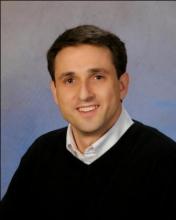Welcome from the Program Director
Thank you for your interest in the doctoral program in Clinical Translational Science (CTS) at Case Western Reserve University (CWRU). Our mission is to train world-class clinical translational scientists who will lead innovative research that puts scientific discoveries to work toward better human health. CTS is a broad-based field, and our program allows students to focus on any point along the translational spectrum—from translation of basic science discoveries into human diagnostics and treatments, to translation of these diagnostics and treatments into clinical practice, or even widespread implementation of evidence-based practice across populations. The ultimate goal is the same: to tackle some of the world’s most significant health challenges.
Our program is housed in the Department of Population and Quantitative Health Sciences within the CWRU’s School of Medicine. CWRU is one of the top-ranked medical schools in the U.S., and CTS students benefit from access to mentors from not only CWRU but also from its partner clinical institutions including The Cleveland Clinic, University Hospitals of Cleveland, MetroHealth Medical Center, and Cleveland’s Louis Stokes Veterans Affairs Medical Center. Students gain the tools and experience needed to ask the most relevant questions and lead interdisciplinary teams to answer them using the most appropriate methods. In addition to strong quantitative and research design skills, students learn a unique set of theories and methodologies based on national standards—all with substantial flexibility to customize their own programs of study to meet specific training goals.
Our students come from diverse disciplinary backgrounds and include physicians, dentists, nutritionists, research technicians, and others. Many, in fact, continue to work while pursuing the program at their own pace. The students’ interests are equally diverse, with projects spanning cancer therapeutics, donor organ allocation, oral health-systemic disease links, applications of 3D imaging, health disparities, big data, artificial intelligence, and more. All share the goal of efficiently and effectively moving scientific discoveries into clinical and community practice. While our program is young (launched in 2015), our graduates are already having an impact from within top academic institutions and companies.
If, after exploring our website, you still have questions about the program and whether it may be the right fit, please do not hesitate to contact us. We look forward to getting to know you!
Johnie Rose, MD, PhD


